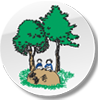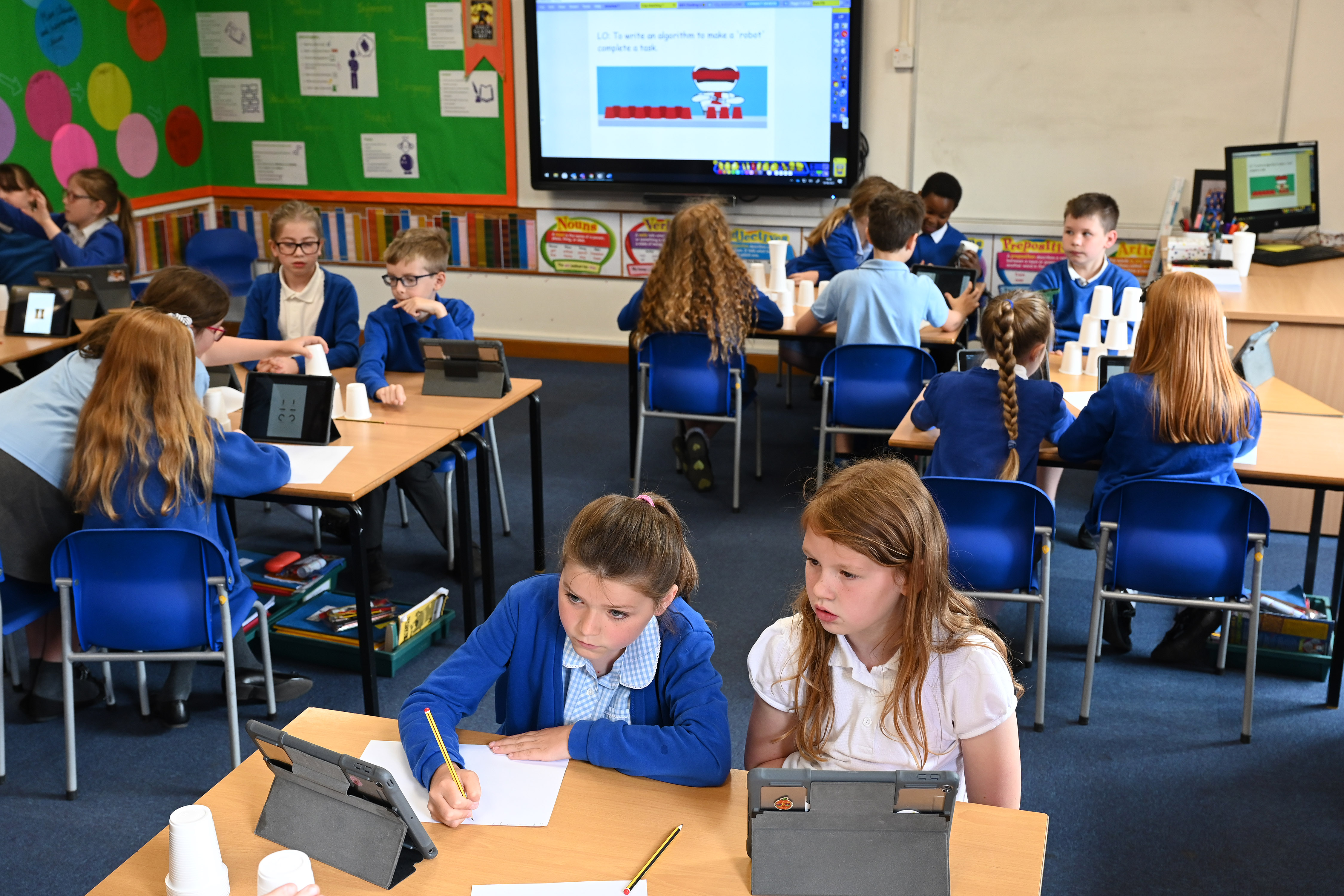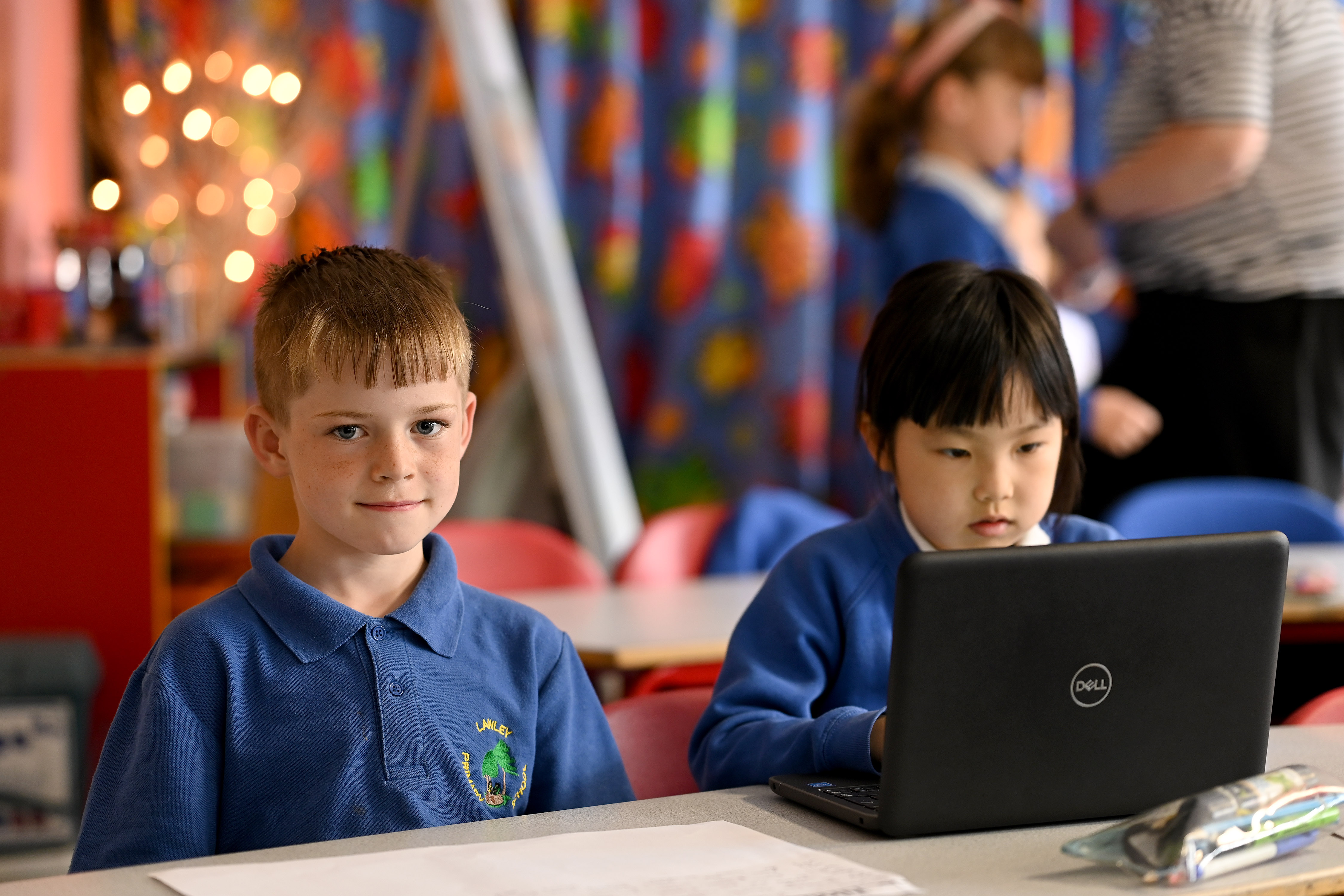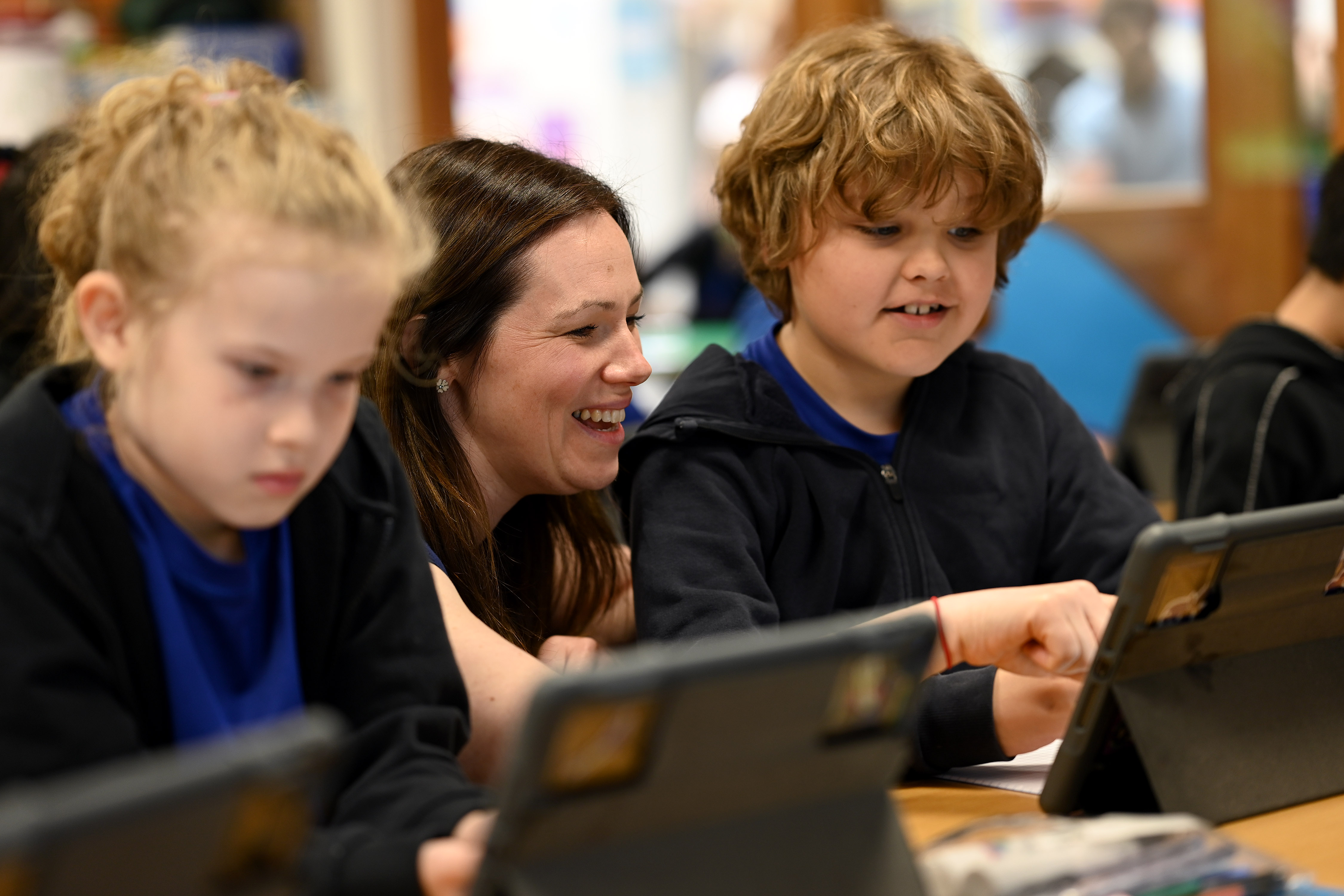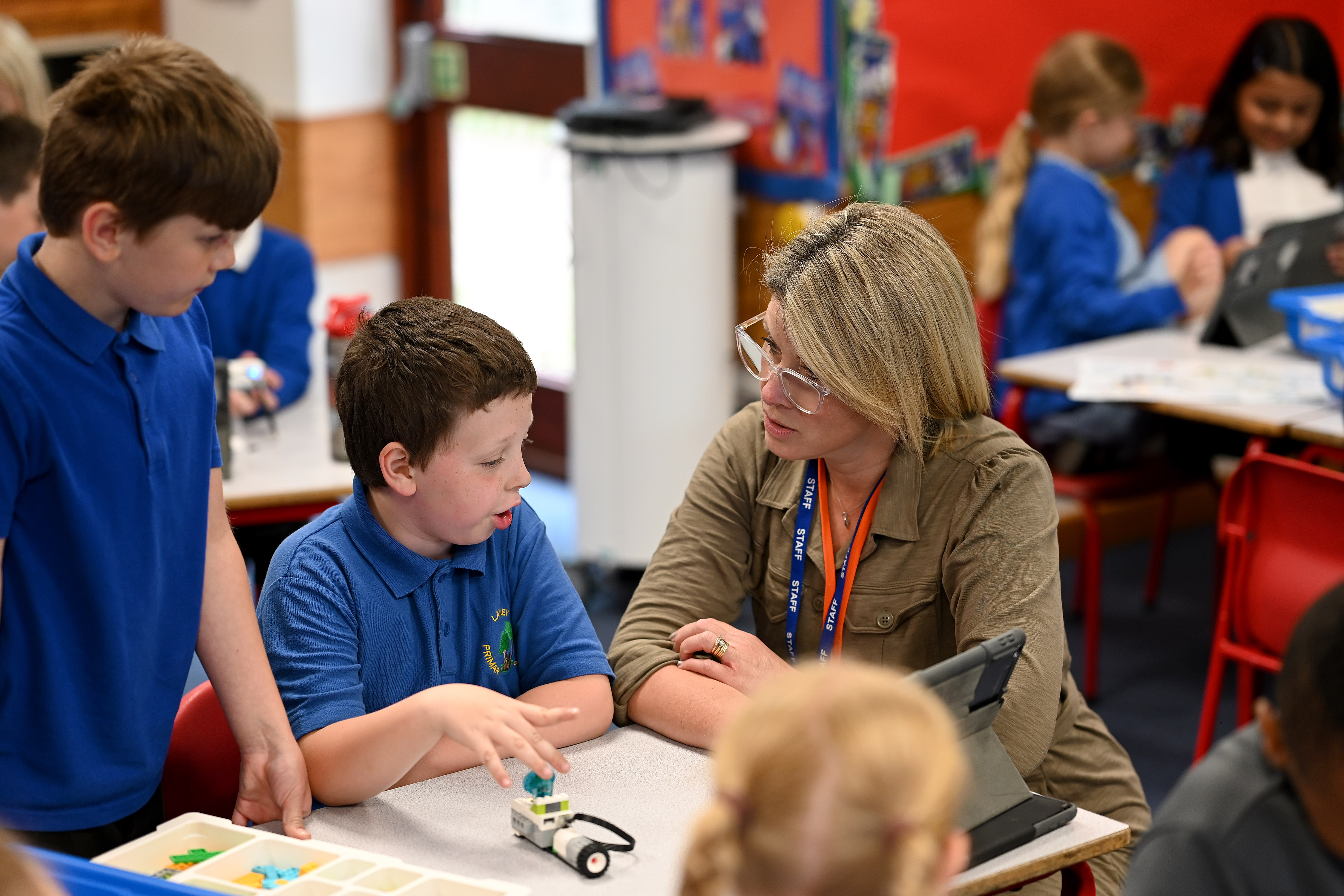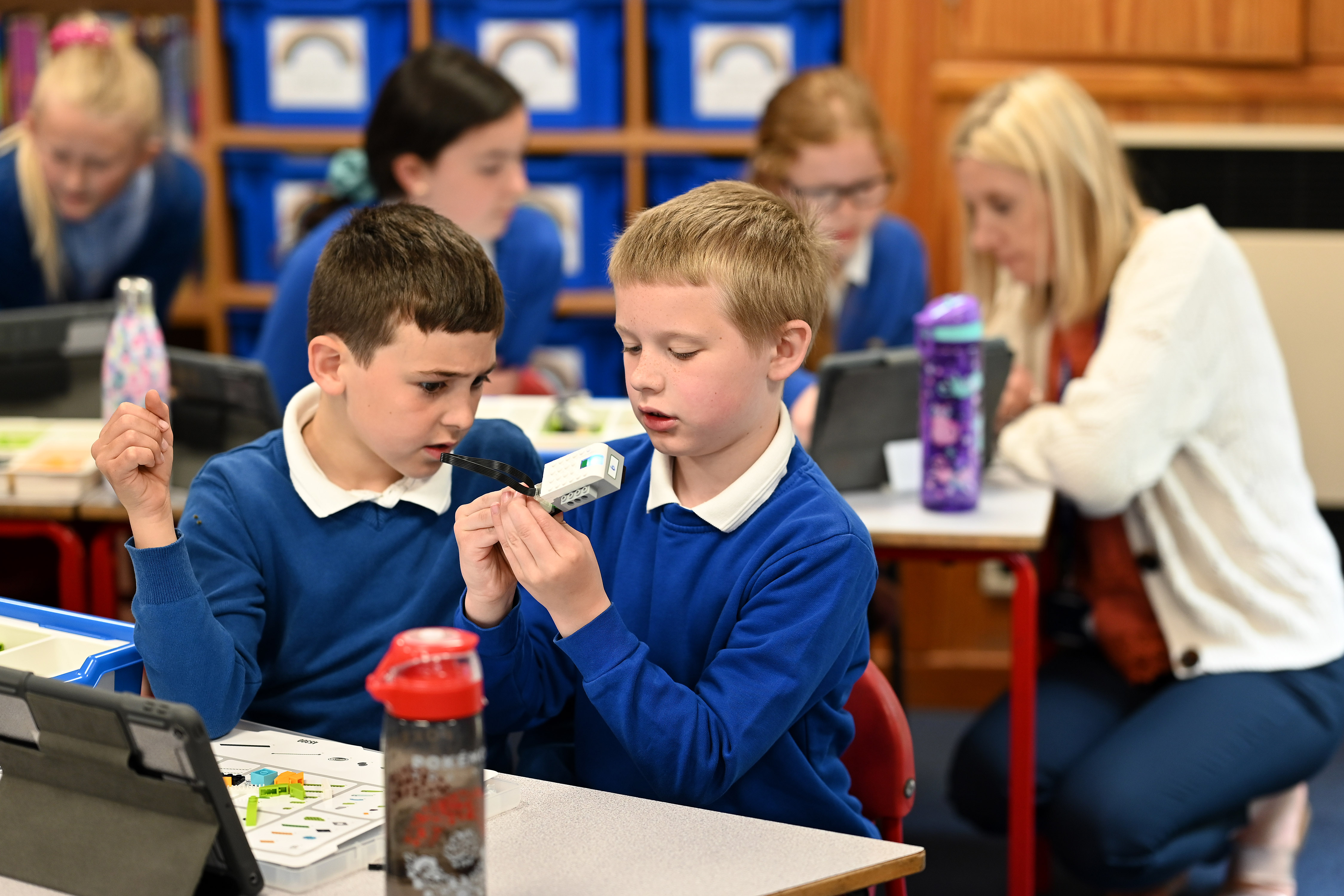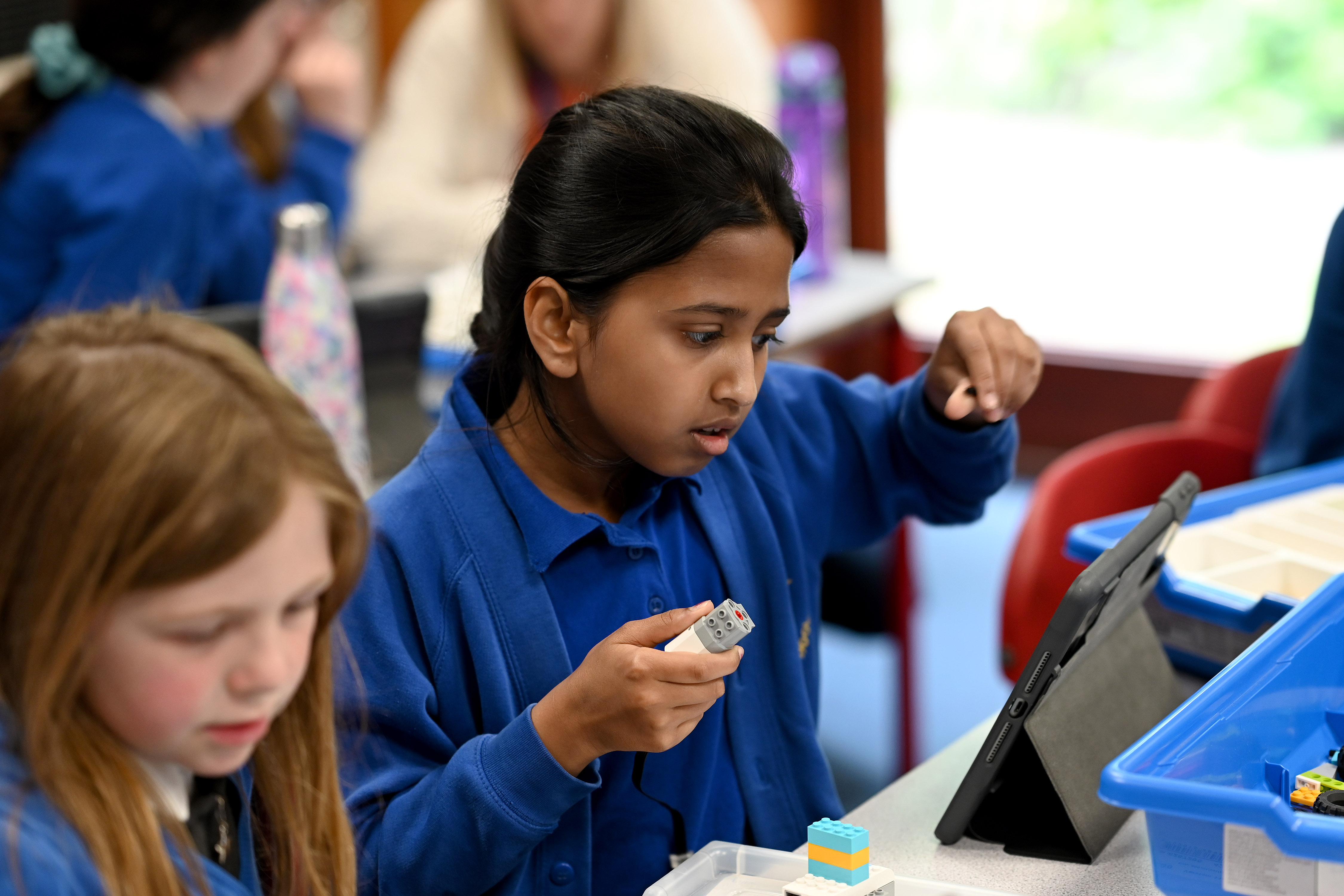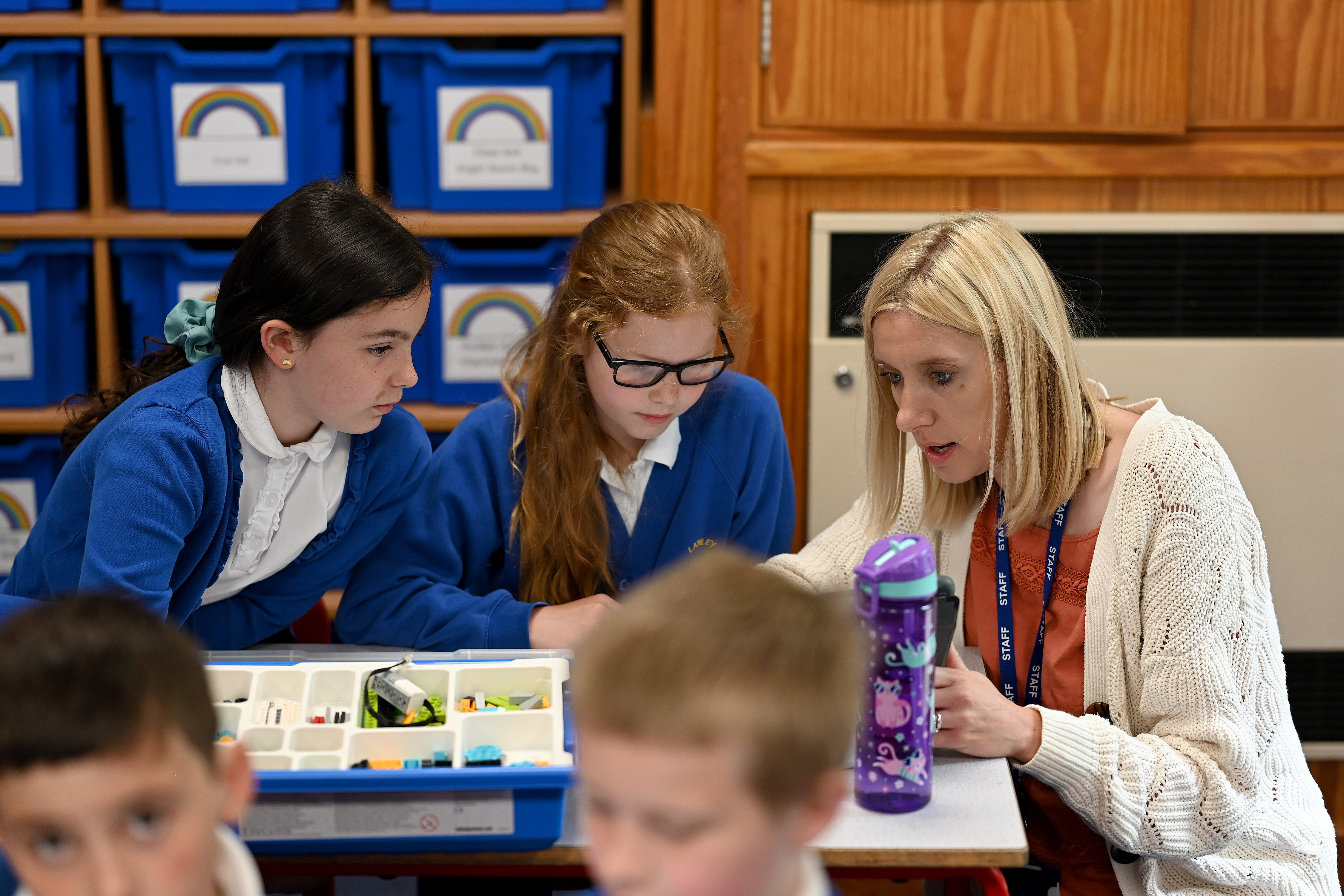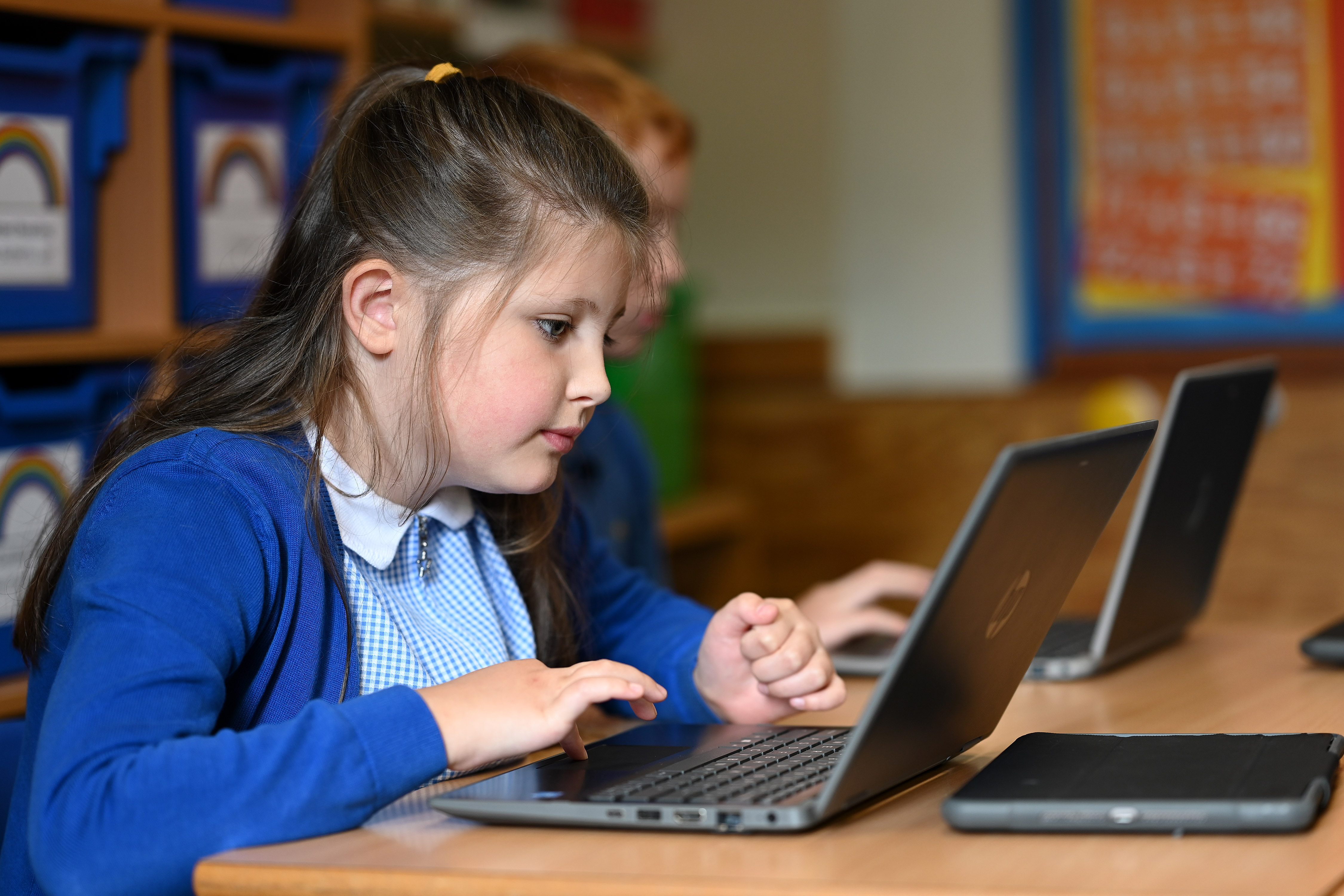Computing at Lawley Primary School
Our school vision
The whole school community at Lawley have high expectations for our children, and strive to ensure they leave school as confident, polite and independent young people, with the appropriate skills, values and learning to become successful in whatever their future will be. We aspire to instil in all our children a desire to never stop learning and to have the courage to succeed in whatever they do, across all areas of school life and beyond. At Lawley we are ‘Planting the seeds, growing the future.’
Led by Sean Griffiths and Caitlin Folger
Intent
At Lawley Primary School, our whole curriculum is shaped by our school vision which aims to enable all children to leave school as confident, polite and independent young people, with the appropriate skills, values and learning to become successful in whatever their future will be. In Computing, we aim to prepare our learners for their future by giving them the opportunities to gain knowledge and develop skills that will equip them for an ever-changing digital world. Our Computing curriculum focuses on a progression of skills in digital literacy, computer science, information technology and online safety to ensure that children become competent in safely using, as well as understanding, technology.
The use of technology to enhance learning experiences is at the heart of our school. All pupils from Year 2-6 have 1:1 iPad devices (through our iPad scheme) which they use throughout the curriculum as well as at home, and EYFS and Year 1 children have access to a class set of iPads and other tablets for use in school. All children also have access to laptop computers.
Our principle aims for computing are for children to:
- develop their understanding of technology and how it is constantly evolving ensuring they recognise the importance of being adaptable.
- develop their skills and knowledge which is essential to developing Computer capability.
- evaluate the benefits and risks of technology and how to manage their use of it safely and respectfully.
- be independent, competent, confident and creative users of information and communication technology
Implementation
We teach the National Curriculum, supported by the NCCE scheme of work and Project Evolve resources, which enables clear skills and knowledge progression. This ensures that skills and knowledge are built on year by year and sequenced appropriately to maximise learning for all children in order that the children know more, remember more and can do more.
To ensure a broad range of skills and understanding, our Computing curriculum comprises 4 strands:
- Computer Science – the core of computing where pupils are taught how digital systems work and how to use this knowledge to program. Pupils learn the principles of computation and information.
- Information Technology – the application of using their computer science knowledge to create media including paintings, animation, video and webpages. The knowledge and understanding of using computers to collect, hold, manipulate and use data.
- Digital Literacy – to understand computer networks including the internet, to use technology safely, respectfully and responsibly and to evaluate content on the internet.
- Online safety - based on the Project Evolve toolkit that covers knowledge, skills, behaviours and attitudes across eight strands of online safety.
Computing skills are taught both discretely and across the wider curriculum, supporting other areas of learning across the school. As children move through school, they actively build on their learning from previous years, with more complex skills being taught. New learning is linked back to previous learning as appropriate ensuring that children understand the learning journey they are taking in the subject and therefore enabling them to know more, remember more and therefore do more. Learning often begins with ‘unplugged’ activities where children practise the skills in a real-life context before applying the skills to more abstract situations. There are opportunities for physical computing as they move through school. Online safety is delivered through an online safety day held each half term as well as ongoing communications to children, parents and carers. All computing work in KS2 is documented and saved on our online platform Showbie enabling pupils to share their successes at home with parents and carers. KS1 computing work is recorded in pupils' books.
Impact
We measure the progress made by our children through discussions with them about their computing lessons and by observing their ability to complete tasks independently or with support. Through discussion, we also regularly review the children’s knowledge and understanding of e-safety issues and reinforce how to keep themselves safe. It is important to us as a school to ensure that we monitor the teaching of our computing curriculum therefore the subject leaders ensure that the curriculum is being delivered correctly and that all equipment is up to date and in good working order.
The impact of this curriculum ensures that when children leave Lawley Primary School, they are competent and safe users of ICT with an understanding of how technology works. They will have developed skills to express themselves, be creative in using digital media and be equipped to apply their skills in Computing to different challenges going forward in order to become independent young people and be successful in whatever their future will be. We aim to have inspired a desire to never stop learning and to have the courage to succeed in whatever they do, in future school life and beyond.
